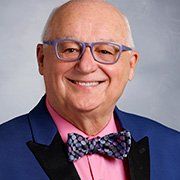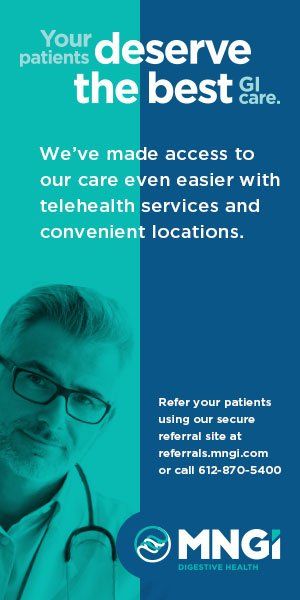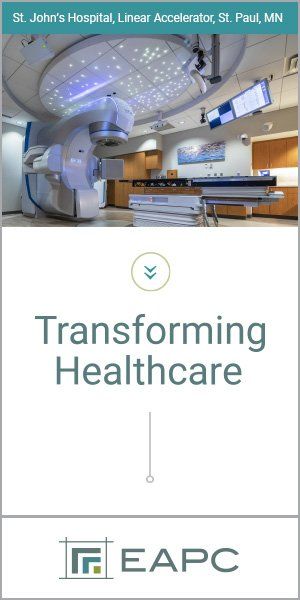Interview
Providing Leadership in Sexual and Gender Health
Eli Coleman, PhD
Please tell us about the goals and guiding principals that led to the foundation of the Institute for Sexual and Gender Health, which until last year was known as the Program in Human Sexuality and Center for Sexual Health.
The Program in Human Sexuality (the Program), now the Institute for Sexual and Gender Health (ISGH), was founded in 1970, and its goals and guiding principles have essentially remained the same for over 50 years. The Institute was created out of a recognition there was a profound misunderstanding of human sexuality and educating health care professionals and the public was key to everyone’s health and well-being. It was also apparent that many of the sexual problems that people were facing were perpetuated by a culture that was uncomfortable talking about sex, did not value the importance of sexuality education and that laws and social policies were not always formulated based upon the best available science. For 50 years, the Institute for Sexual and Gender Health has been educating allied health professionals and the public, conducting research to advance our knowledge, providing clinical care to hundreds of individuals, couples and families each year and advocating for a science-based approach to public policy and laws. We have been changing the cultural climate and providing leadership in the field of sexual and gender health education, research and clinical care.
Last year you celebrated your 50th Anniversary, what were some of the biggest challenges in reaching that milestone?
Funding has always been a big challenge. Research grant opportunities and priorities have waxed and waned over these many years. Sexuality research has not always been seen as a public health priority. It really gained some credibility as we faced the HIV pandemic. Now we see it relevant to addressing many health conditions and a greater appreciation sexual health is critical to overall health, well-being and quality of life. We have had to adapt to those highs and lows by shifting some of our research priorities and finding other mechanisms for revenue to support our research. We have been able to build a steady stream of clinical revenue, but reimbursement and insurance coverage has always been a challenge in covering costs. While we have had support for our educational activities from the Medical School, it does not quite cover all of the expenses for faculty time in developing curriculum and delivering content. Our flexibility and the tremendous support we receive from our Department of Family Medicine and Community Health, as well as philanthropic support, has helped us to weather the highs and lows of funding.
What are some of the issues that were involved with attaining the Institute status?
A number of years ago, we recognized that the Program had grown so much in breadth and stature that it had outgrown its status as a “Program.” The University has criteria for Institutes and Centers, and everyone understood that we met that criteria. There was not much question; it was more a matter of running it through the bureaucratic challenges.
Sexual health is critical to overall health, well-being and quality of life.
Please tell us about the range of services you offer.
We offer a wide variety of both clinical and educational services. In terms of clinical care, we provide psychological, medical and psychiatric services related to sexual and gender health concerns. We like to treat the whole person from a biopsychosocial perspective. We not only help individuals, but also work with couples and families as appropriate. This ranges from relationship and sexual problems, such as low sexual desire, orgasmic difficulties, sexual pain and compulsive sexual behavior to gender and sexual orientation identity issues across the lifespan.
Our educational services include our internationally renowned human sexuality curriculum for University of Minnesota medical students, as well as clinical rotations for medical students and family medicine residents. In the last few years, we have expanded our educational services by offering a graduate level certificate in human sexuality and now a master’s degree in sexual health. In addition, we lecture and present at professional meetings, host community education events such as our Sex Science Happy Hour series and provide educational workshops around the world.
What are some of the things a primary care physician might look for in their patients that would indicate a referral to your programs could be helpful?
First, they should recognize most of their patients have sexual concerns certainly at different developmental periods, but also as they experience acute or chronic medical conditions. Not only do the conditions themselves impact their patient’s sexuality, but the treatments they receive also have an effect. Ask, “How is this…affecting your sexuality or sexual function? Do you have any concerns about your sexual or gender identity?” If they ask even a simple question, the patient will know they are an “askable physician” and are more likely to bring up questions or issues on their own. Remember that, like everything in medicine, it is the physician’s responsibility to bring up topics—even if they are uncomfortable.
How has the work you are doing influenced the development of other similar programs nationwide?
ISGH is the preeminent sexual health institute in the country and certainly one of the most notable in the world. Our faculty are current leaders in our field, and we produce the field’s future leaders. Our alumni and former faculty have gone on to develop or reinvigorate programs and institutes around the country. It is always so gratifying to see the influence we have had on the graduates of our medical school or the many postdoctoral fellows we have graduated.
What can you share about health care disparities within the GLBQT community and how they might be best addressed?
SGH has a very long history of addressing the health care disparities within the LGBTQ+ community. We emphasize training of health care professionals, not only to empower them with knowledge, but also to help them develop cultural humility and competence. We are also proud that we have so many LGBTQ+ faculty, and we actively work to provide opportunities within ISGH for other minoritized people to gain experience in this field. So we are “walking the talk” of diversity, equity and inclusion. Our challenge is to better address the intersectional challenges of racial, gender and orientation issues that are systemic to health care disparities.
How has COVID impacted your work?
COVID forced us to shift completely to telehealth and online educational programming. COVID has created those opportunities, but now we are trying to find the balance of what is valuable and essential in a person and what can be done in a virtual world. We firmly believe that authentic human connections are essential for everyone’s health and well-being, and with COVID we have lost some of that. We have also studied the impact of COVID on people’s sexuality and relationships, and clearly, COVID has had its short term overall negative impact. In addition to the research that supports this, we are also seeing these negative impacts play out in our existing patient population, as well as in increased demand for our clinical services. It is a challenge to meet all of the needs that are out there.
What are the biggest challenges you organization faces today?
Funding is always an issue to keep us competitive in recruiting and retaining the very best faculty and staff. Clinic, research grant and educational revenue never keeps up with the cost of doing business. Philanthropy has been essential to fill in the gaps and allow us to invest in new resources.
We also recognize that there is growing political and social tension around sexual and gender health issues which does not currently affect our ability to provide clinical services, but very well may in the future. We are constantly aware of these threats and have a strong emphasis on advocacy as a guiding principle for our work as a result of the social climate in which we exist.
What are some examples of success stories your work has created?
We have been successful in not only establishing the first academic chair in sexual health in the world, but also an additional three endowed faculty positions. This allows us to recruit and retain the best leaders in this country to Minnesota to carry on the rich tradition in perpetuity that the pioneers began over 50 years ago. These resources allow us to have fundamental impact on our patients’ lives, and in many cases, this has been lifesaving.
We have developed models of clinical care that influence how these issues have been addressed around the country and the world. We have trained over 10,000 of our own University of Minnesota medical students in sexual health, who have gone out to practice all over Minnesota and around the country to be knowledgeable and “askable” physicians, thereby impacting millions of individuals under their care.
We have conducted groundbreaking work to better understand the sexual and gendered lives of people that has informed treatment, further research and public policy. We have had a profound influence on public health policies to recognize the importance of sexual health as fundamental to overall health and well being.
What would you like physicians to know about the work you are doing?
ISGH is a beacon and one of the crown jewels of the University of Minnesota Medical School unparalleled in other parts of this country. It is not something that we can take for granted. We will need more support to advance sexual and gender health in Minnesota, around the nation and around the world. We recognize that our physicians will touch so many more lives than we can ever possibly reach, and that is why our mission to train physicians is so very important. We are here to handle your complex cases and give you more tools to provide the sexual health care that your patients need and want.
Eli Coleman, PhD, is the director and academic chair in Sexual Health at the Institute for Sexual and Gender Health (ISGH) at the University of Minnesota Medical School. He began his career at ISGH in 1977 and has been the director since 1991.
MORE STORIES IN THIS ISSUE














